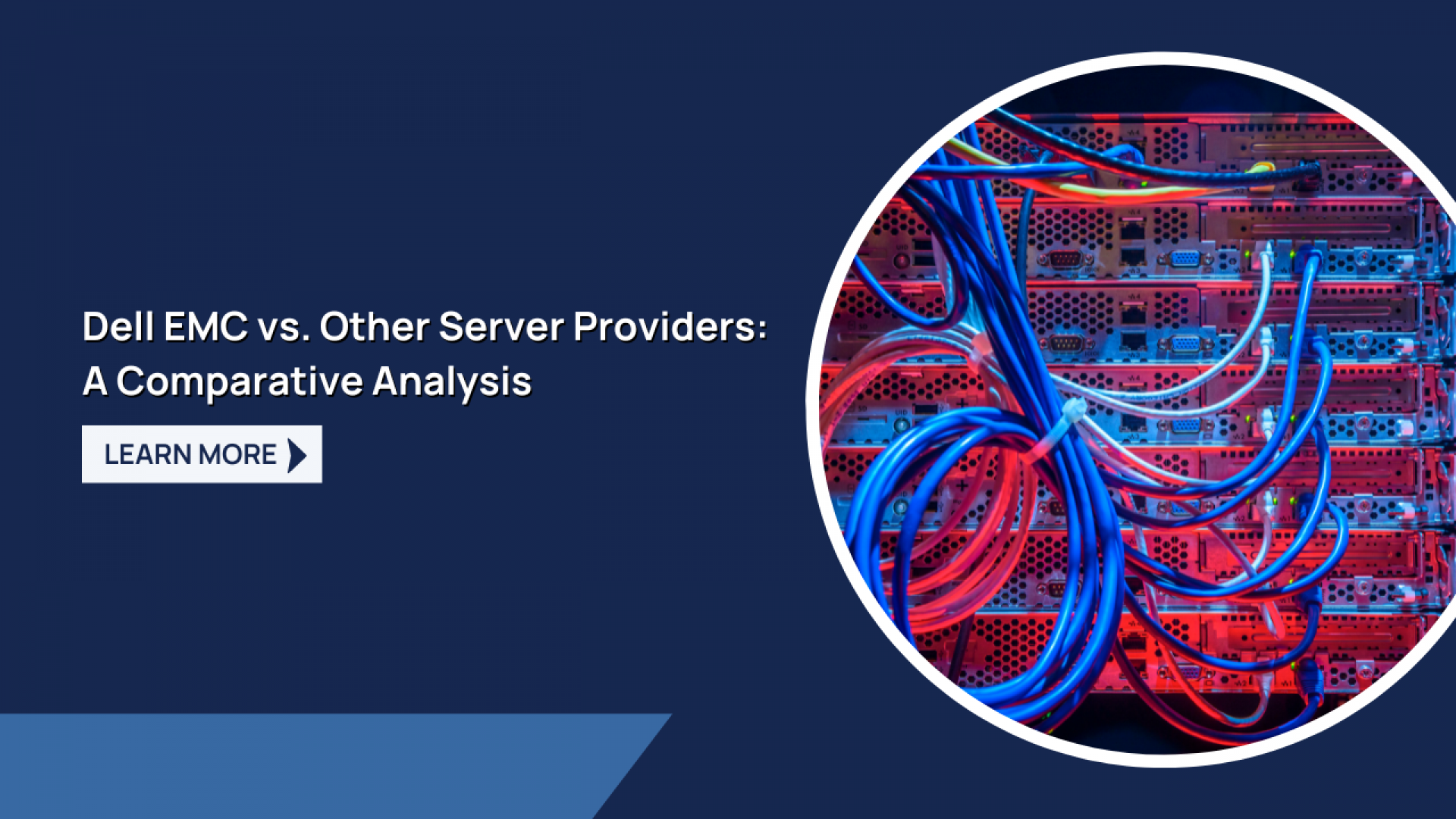
In the ever-evolving landscape of server technology, choosing the right provider is crucial for businesses aiming to meet their IT infrastructure needs efficiently and effectively. Among the array of server providers, Dell EMC stands as a prominent player, renowned for its PowerEdge server lineup and comprehensive solutions. However, in a market saturated with competitors, ranging from industry giants to niche players, it becomes imperative to conduct a thorough comparative analysis to discern the strengths, weaknesses, and unique offerings of each provider. In this blog post, we'll embark on a comprehensive exploration of Dell EMC versus other server providers, delving into various aspects such as product offerings, performance, reliability, support, and overall value proposition.
Introduction
In today's digital era, businesses rely heavily on robust and reliable server infrastructure to power their operations, applications, and services. As such, the choice of server provider plays a pivotal role in shaping the IT landscape of organizations. While Dell EMC has established itself as a market leader, boasting a diverse portfolio of servers tailored to different use cases and requirements, it faces stiff competition from other established players and emerging challengers.
Product Offerings
Dell EMC's PowerEdge server lineup encompasses a wide range of models, from entry-level towers to high-density blade servers, catering to diverse workloads and environments. The PowerEdge portfolio is characterized by its scalability, performance, and innovative features, making it a popular choice for businesses of all sizes. However, other server providers such as Hewlett Packard Enterprise (HPE), Lenovo, and Cisco also offer compelling server solutions with unique features and capabilities.
HPE's ProLiant servers, for instance, are renowned for their reliability, flexibility, and comprehensive management tools. Lenovo's ThinkSystem servers emphasize performance, efficiency, and ease of deployment, targeting modern data center environments. Cisco's Unified Computing System (UCS) servers integrate compute, storage, and networking capabilities into a unified architecture, simplifying infrastructure management and scalability.
Performance and Reliability
When it comes to performance and reliability, Dell EMC's PowerEdge servers have earned a reputation for their robustness, stability, and industry-leading performance metrics. Built upon cutting-edge technologies such as Intel Xeon processors, DDR4 memory, and NVMe storage, PowerEdge servers deliver exceptional performance across a wide range of workloads, including virtualization, database management, and high-performance computing.
However, competitors like HPE, Lenovo, and Cisco also excel in delivering high-performance, reliable server solutions tailored to specific use cases and customer requirements. HPE's ProLiant servers, for example, boast industry-leading uptime and reliability metrics, backed by rigorous testing and validation processes. Lenovo's ThinkSystem servers leverage innovative design principles and advanced components to deliver outstanding performance and reliability in mission-critical environments. Cisco's UCS servers, renowned for their converged infrastructure approach, offer exceptional performance, scalability, and agility for data center deployments.
Support and Services
Aside from product performance and reliability, the caliber of support and services provided by server providers significantly influences businesses' decision-making process. Dell EMC's extensive support offerings, such as ProSupport and ProDeploy services, offer customers reassurance and guidance across their server infrastructure's lifecycle. These services encompass initial deployment, configuration, ongoing maintenance, and optimization, aiming to enhance uptime, efficiency, and return on investment for clients. By prioritizing comprehensive support, Dell EMC strives to ensure that customers experience seamless operations and receive the necessary assistance to address their evolving IT needs effectively.
Similarly, other server providers such as HPE, Lenovo, and Cisco also offer a range of support and services tailored to meet the needs of diverse customers. HPE's Pointnext services provide expert guidance, consulting, and support to help customers optimize their IT environments and achieve their business goals. Lenovo's TruScale Infrastructure Services offer flexible, consumption-based pricing models that align with customers' evolving needs and budgets. Cisco's Services portfolio encompasses a comprehensive suite of offerings, including advisory, implementation, and managed services, designed to simplify IT operations and drive business outcomes.
Overall Value Proposition
Ultimately, the choice between Dell EMC and other server providers boils down to the unique requirements, priorities, and preferences of each organization. While Dell EMC's PowerEdge servers offer a compelling combination of performance, reliability, and support, other providers like HPE, Lenovo, and Cisco also have their own strengths and advantages to offer.
Businesses prioritizing high-performance, scalable server solutions often opt for Dell EMC's PowerEdge portfolio, benefiting from its robust offerings and comprehensive support services. Nonetheless, organizations with distinct use cases, budgetary limitations, or vendor preferences might discover viable alternatives from competitors like HPE, Lenovo, or Cisco. Exploring diverse options enables businesses to align their server infrastructure with their specific requirements and operational objectives, ensuring optimal performance and value. While Dell EMC remains a popular choice for its reliability and support, the dynamic nature of the market encourages businesses to conduct thorough evaluations to determine the most suitable solution provider. By considering factors such as performance, scalability, support, and budget, organizations can make informed decisions that best meet their IT needs and future aspirations, fostering efficiency and growth in their operations.
Conclusion
In conclusion, the decision to choose between Dell EMC and other server providers requires careful consideration of various factors, including product offerings, performance, reliability, support, and overall value proposition. While Dell EMC's PowerEdge servers remain a popular choice for businesses worldwide, competitors like HPE, Lenovo, and Cisco also offer compelling server solutions tailored to meet the diverse needs of modern organizations. By conducting a thorough comparative analysis and evaluating the specific requirements and priorities of their IT infrastructure, businesses can make informed decisions that align with their long-term goals and objectives.

Leave a Comment